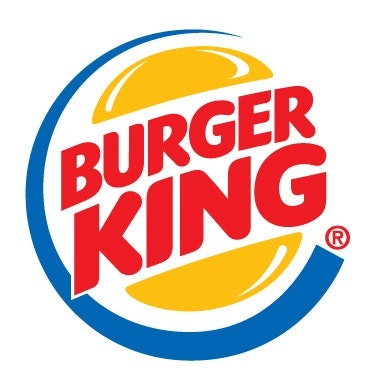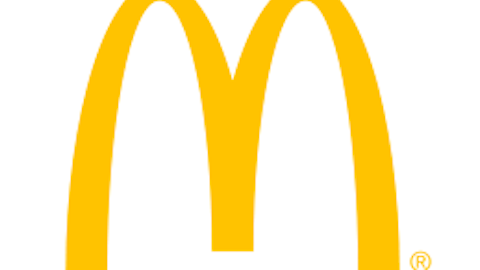Burger King Worldwide Inc (NYSE:BKW) was founded in 1954 and is a prominent name in the fast-food restaurant sector being the world’s second largest fast food hamburger restaurant chain (by number of restaurants).
The company has a global presence with operations spreading across the U.S, Canada, Europe, Middle East, Africa and Asia-Pacific.
Although presently, the company’s revenue streams majorly include Franchise Revenues (royalties on margin of sales by franchisees and fees recovered from them), Property Income (income from properties leased out to franchisees) and Retail Sales (at company’s restaurants); but going forward, the company plans to incorporate a 100% franchised business model.
A look at the numbers
The company did well in the last fiscal year, with a 3.2% year-over-year growth in total revenues. The adjusted operating income rose 11.5 % reaching an impressive $ 652.1 million. The company opened 485 new restaurants, making the total count reach an astounding 12,997. In addition, taking its planned strategy forward, the company successfully refranchised 871 restaurants achieving a 97 % franchised business model.
Moving forward, the first quarter of 2013 saw a slight dip in global revenues of the company to the tune of 1.4 % year-over-year owing to challenging economic scenario. Nevertheless, the company achieved a year-over-year growth in adjusted operating profits of 4.5% on an organic basis depicting the company’s operational efficiency.
Analyzing the strategy
Burger King Worldwide Inc (NYSE:BKW) believes that a 100% franchised business model would allow it to focus on brand development and other value adding initiatives such as menu innovation thereby enabling it to develop a competitive advantage over its peers.
The company works in the direction of strengthening four strategic dimensions which form the core drivers of its revenue being Menu, Marketing Communications, Operations and Image.
In a bid to broaden its customer base and accelerate revenues, the company has developed a well-rounded strategy to pitch its sales. Ranging from remodeling its menu to devising an aggressive marketing plan of action to launching an image makeover, the company is dedicated to steer ahead in the competitive plane. Furthermore, the company has taken significant steps to ensure ultimate satisfaction to consumers by introducing restaurant crew training and other measures aimed at achieving operational efficiency.
It is noteworthy that the company has successfully achieved a 10-15% increase in sales owing to re-imaging of its restaurants translating into better return for its franchisees and over-all contribution to the company’s revenues.
The expansion strategy
With the goal of achieving inorganic growth and secure access to newer markets, the company has been actively engaged in entering into strategic partnerships. The company plans to capture high growth developing markets in order to benefit from the emerging opportunities in this space owing to higher disposable incomes and the rise of the middle class.
The past fiscal year saw the company enter into joint venture agreements to penetrate China, Russia, South Africa, Central America and Mexico.
The above move evidences the company’s rapid expansion plans which makes way for robust growth in the future of the company owing to wider markets, larger customer base and diversification.
Industry outlook
Food inflation, economic downturn and rising health consciousness have negatively impacted the fast-food industry in the recent past. Nevertheless, the emergence of the new age working class who live life on the go caused a rise in demand for a quick bite options. Moreover, the emergence of developing economies as huge markets saved the industry from suffering major set-backs due to recession.
The concept of “food-on-the-go” forms the most unique selling point of this industry and hence the players in the fast-food segment have a lot to look forward to.
With the market in the United States nearly saturated, the onus is on the market players to bring about innovation and creativity in their offerings to the customers so as to build up their customer base in America. However, the rise of the emerging markets form the silver lining on the cloud for the Fast food industry players.
Considering the above scenario, with Burger King Worldwide Inc (NYSE:BKW) taking active steps in the direction of product development, innovation and market penetration in the emerging countries through execution of strategic alliances will impart the company a definite competitive advantage and strengthen its standing in the industry.
Competitive landscape
The fast food industry is a very competitive space and Burger King Worldwide Inc (NYSE:BKW) directly competes with some of the biggest names in the fast food sector.
McDonald’s Corporation (NYSE:MCD) is an industry leader and the toughest competitor for Burger King. The company delivered decent performance in 2012 achieving a modest 3.1% year-over-year growth in sales and 4% (excluding foreign currency effects) year-over-year growth in operating income. The company generated a total of $ 7 billion as cash from operations.
The fast-food giant has successfully employed a strategy aimed at re-imaging of the restaurants in order to appeal to customers including substantial value addition to its product portfolio in order to meet the changing tastes and preferences of the consumers.
In response to the marked rise in the demand for healthy options for food, the company has made significant changes to its menu and introduced new product lines adding healthier alternatives on offer.
With the fast food industry set for a paradigm shift owing to the change in the demand patterns of the consumers and the emergence of the developing economies as a huge market, McDonald’s Corporation (NYSE:MCD) seems to have braced itself to meet the upcoming challenges and maintain its position as the market leader.
Yum! Brands, Inc. (NYSE:YUM) is another competitor to Burger King Worldwide Inc (NYSE:BKW). With a market capitalization of about $31.59 billion, Yum! Brands, Inc. (NYSE:YUM) is a prominent player in the fast food market. It owns popular brands such as Taco Bell, KFC, Pizza Hut, and WingStreet restaurants. The company dished out a decent performance in 2012 clocking a 5% year-over-year increase in system wide sales and a 12 % year-over-year growth in operating profit.
The company is presently focusing on worldwide international expansion with special focus on India and China which are touted to be the biggest markets for fast food segment in the times to come.
The company achieved a return on invested capital of 22% while generating an operational cash flow of $ 2.3 billion in the last fiscal year which speaks volumes about the company’s strong fundamentals.
With an aggressive expansion strategy at hand, the company is well placed against its rivals in the industry and is a strong candidate to attain the top spot in the global market space.
Foolish takeaway
Evidently, the global fast food industry is an extremely competitive place with strong and experienced players hogging the market. Nevertheless, Burger King’s balanced approach to business focusing on customers, markets, operational efficiency and brand building catapults the company in the running for robust and sustained growth.
An appraisal of the industry scenario reveals a massive opportunity for growth in the emerging markets and with Burger King Worldwide Inc (NYSE:BKW) having extensive expansion plans on its agenda, the company is well on its way to capitalize on it, creating a huge possibility for embarking upon a growth trajectory making it a worthy addition to your portfolio.
Lalita Chauhan has no position in any stocks mentioned. The Motley Fool recommends Burger King Worldwide Inc (NYSE:BKW) and McDonald’s. The Motley Fool owns shares of McDonald’s Corporation (NYSE:MCD).
The article Hungry….? How About Burger King! originally appeared on Fool.com.
Lalita is a member of The Motley Fool Blog Network — entries represent the personal opinion of the blogger and are not formally edited.
Copyright © 1995 – 2013 The Motley Fool, LLC. All rights reserved. The Motley Fool has a disclosure policy.




